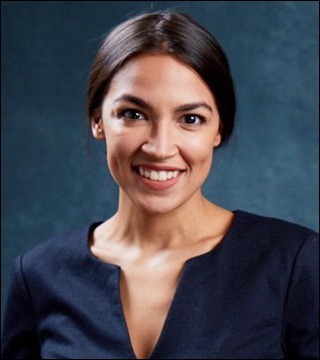By Jim Ellis
July 16, 2019 — Controversy has been arising lately from the Congressional Black Caucus as the organization leaders are charging that the left faction Justice Democrats are isolating their members for primary challenges. But the number of Democratic incumbents having to defend themselves from potentially serious nomination opponents reaches well beyond the CBC.In fact, currently 24 Democratic House members have what appear to be credible primary opponents and at least five more could soon be in a nomination race.
What makes these challenges potentially different and is clearly one reason more ideological candidates are coming forward in what used to be no-win campaigns, is the amount of money being raised online for such contenders.
For example, though his 2016 challenge of Rep. Debbie Wasserman Schultz (D-FL) went down to a landslide 57-43 percent defeat, South Florida law professor Tim Canova raised just under $4 million for his campaign. Almost all of the fundraising came in online donations after presidential contender Sen. Bernie Sanders endorsed his candidacy. Therefore, it is possible that several of the challengers listed below could also begin to attract national electronic donations under the right circumstances.
The Justice Democrats scored heavily in 2018 when Alexandria Ocasio-Cortez upset then-Rep. Joe Crowley (D-NY) and Boston City Councilwoman Ayanna Pressley did likewise to veteran Massachusetts Rep. Mike Capuano (D-Somerville). The credibility gained in those races make their support of 2020 Democratic challengers more noteworthy.
In addition to the incumbents listed below, other members, including Democratic Conference chairman Hakeem Jeffries (D-NY), are also on the Justice target list. Democratic National Committee member and former congressional nominee Rob Zimmerman confirms he is considering launching a challenge against Long Island Rep. Tom Suozzi (D-Glen Cove/Huntington). Observers also report that 2018 candidate Adem Bunkeddeko, who held Rep. Yvette Clarke (D-Brooklyn) to a 53-47 percent primary win, may make another run.




